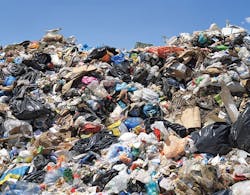Waste Generation on the Decline
Those blue recycling bins are making a noticeable difference – Americans recycled over 65 million tons of municipal solid waste (MSW) and composted over 21 million tons in 2012.
In total, the U.S. generated about 251 million tons of trash, according to the EPA in its report Municipal Solid Waste Generation, Recycling, and Disposal in the United Sates: Facts and Figures for 2012. By recycling and composting almost 87 million tons, we’ve achieved a 34.5% recycling rate.
Commonly recycled materials include lead-acid batteries, steel and aluminum cans, wood, newspaper, cardboard, yard trimmings, tires, glass, PET and HDPE plastics, and consumer electronics. MSW does not include industrial, hazardous, or construction waste.
About 12% of the waste stream can also be diverted for combustion. In 2012, 29 million tons of waste were burned for energy recovery. There are 86 facilities around the country that are capable of producing 2,720 MW of power annually from this method.
Since 1990, the total amount of MSW going to landfills dropped by over 11 million tons, from 145.3 million to 135.0 million tons in 2012 (a 7% decrease). After recycling, composting, and combustion, the net per capita discard rate to landfills is 2.36 pounds per day, lower than the 3.19 per capita rate in 1990.
On average, Americans recycle and compost 1.51 pounds out of our individual waste generation rate of 4.38 pounds per person per day.
What kind of waste program does your facility offer? Share your story with Senior Editor Jennie Morton.
